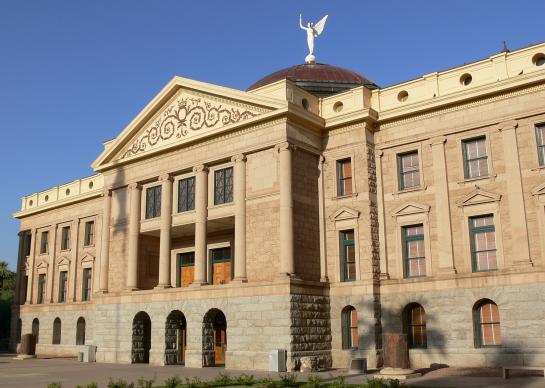AZ Legislative Update 01-20-2023

The budget battles have already begun at the Arizona legislature, though the actual negotiations are still around the corner. Republican leaders have announced their intention to enact a simple continuation of last year’s budget, with new spending to be decided later; Governor Katie Hobbs has outlined her plan for a $17.1 billion budget that repeals some top Republican priorities. Both sides say the other’s idea is unpalatable.
The sharp lines of disagreement are not unexpected, though, and are simply a starting place to build a budget when political parties share power for the first time in 14 years. House and Senate leaders have opened the negotiations with an effort to keep spending low, and the Governor has proposed a menu of policy changes Democrats have long supported. To enact a state budget by June 30 – the date required in the Arizona Constitution – they’ll have to craft a compromise that meets somewhere in the middle and can earn the necessary support at the legislature. Expect to hear a lot of veto threats and gloomy predictions in the meantime.
Budget Hearings Detail Alternate Proposals
Initial hearings on budget proposals from Governor Hobbs and legislative leaders provided a glimpse at these dynamics that will shape future budget negotiations. Republicans on the House and Senate Appropriations Committees questioned the Governor’s budget director for almost two hours, pointing out the top areas of disagreement and policy changes they could not support.
Appropriations Committee members also heard more about the “baseline budget” from the nonpartisan budget office. The baseline budget is not normally viewed as a real budget proposal – legislative staff prepares it each January as a starting point that illustrates the caseload growth in state healthcare and education programs. This year, though, Republican leaders have embraced it as the budget plan they want to enact before negotiating new spending priorities, and the baseline budget has become another lightning rod for debate.
Legislative economists believe the state will have a $1.8 billion budget surplus this year but categorize that entire amount as temporary – available for one-time priorities but not for investments that will require funding after the next fiscal year. Because of uncertainties in the state and national economy, budget analysts say their projections for the state’s bank account balance “will likely change considerably” as the fiscal year unfolds.
Governor Hobbs’ budget shares that cautious outlook – her budget also forecasts slower growth in state revenues over the next few years.
The legislative baseline budget does not allocate most of the predicted surplus because it is not intended to identify new spending priorities for the coming year. It includes $15.5 billion to fund state government and only increases funding for the programs that are required by law to grow along with demand: AHCCCS and K-12 education. It continues funding for items that the legislature enacted as ongoing priorities – like pay increases for state employees and funding for Arizona’s water supply – but removes $511 million in one-time spending that was in last year’s budget – like funding for universities and K-12 school buildings.
Lawmakers will get additional insight into Arizona’s fiscal future next week, when a panel of economists share their forecasts for economic factors that shape tax revenues and state budgeting.
What’s Next?
As the legislative session enters its third week, policy committees will spend more time considering bills. Floor sessions, which have been focused on procedural actions and legislators’ official remarks, will start to include debate about bills that have already made it through committee approval. There will be many more bills for committees to consider – legislators have introduced more than 700 proposals thus far, and that number will climb ahead of bill introduction deadlines in the Senate (January 30) and House (February 6).
On the Bright Side…
These commuters are content.